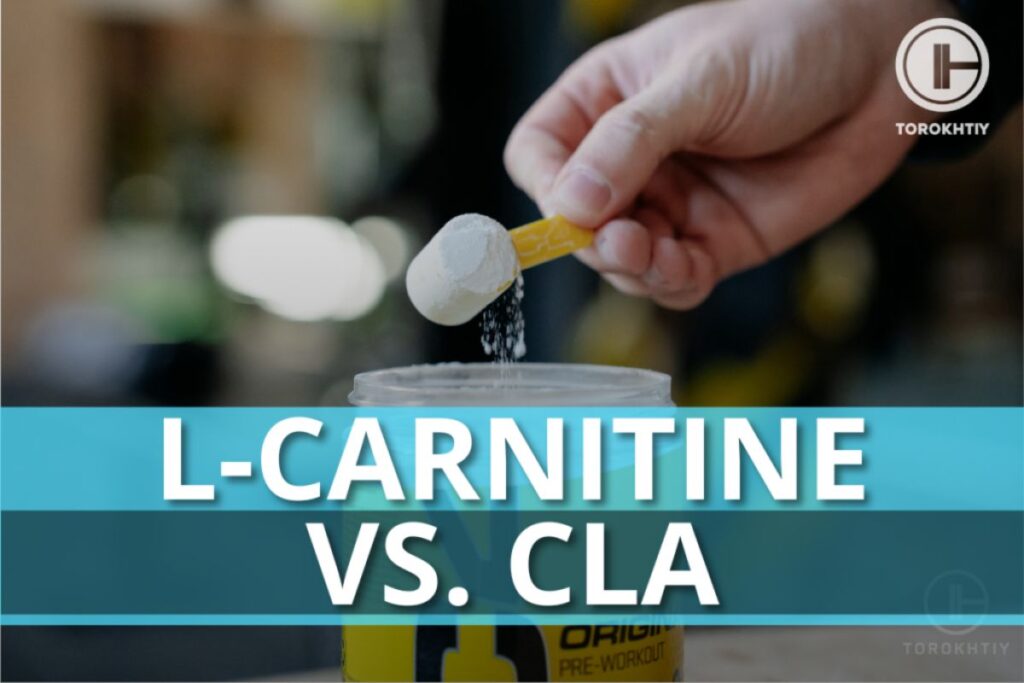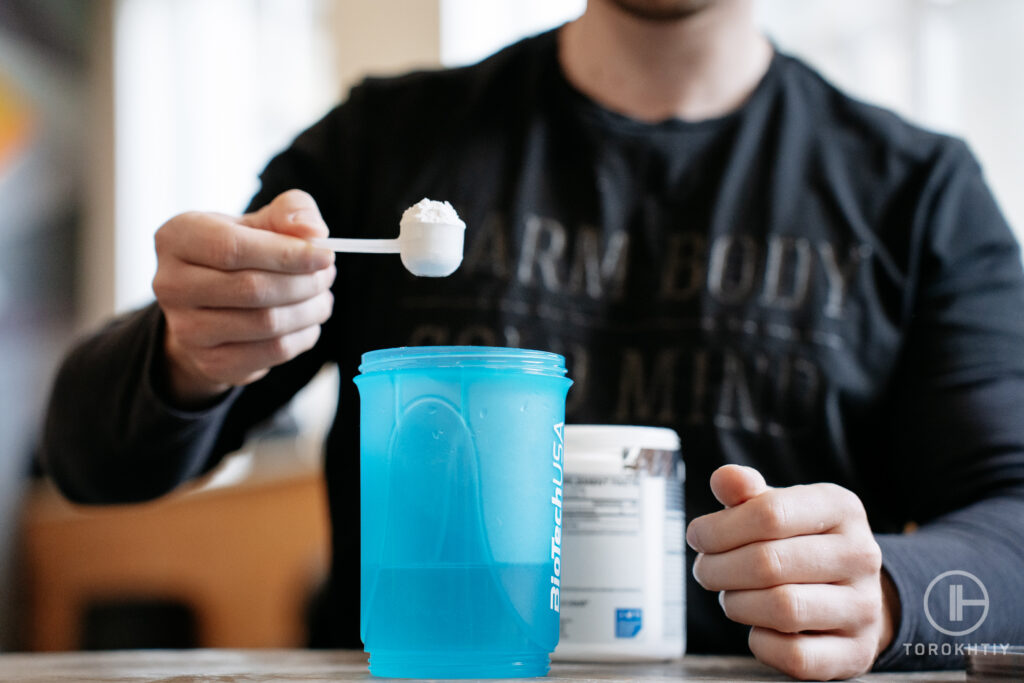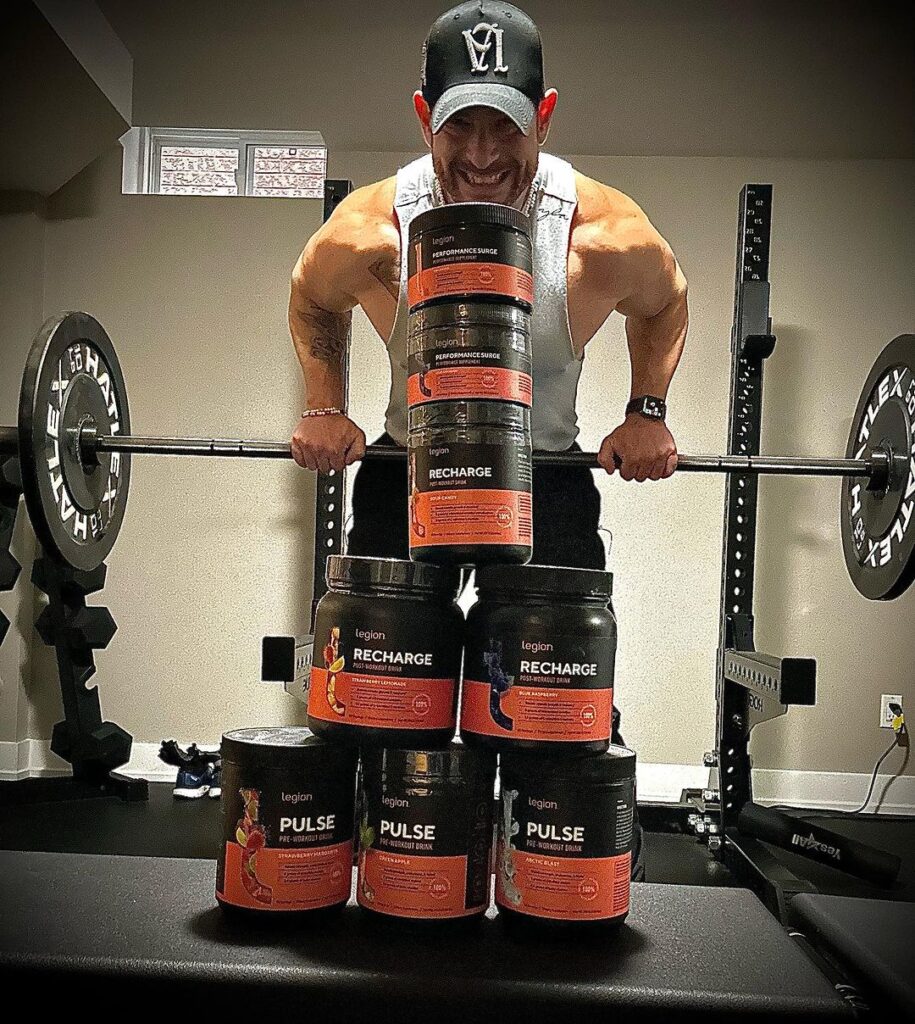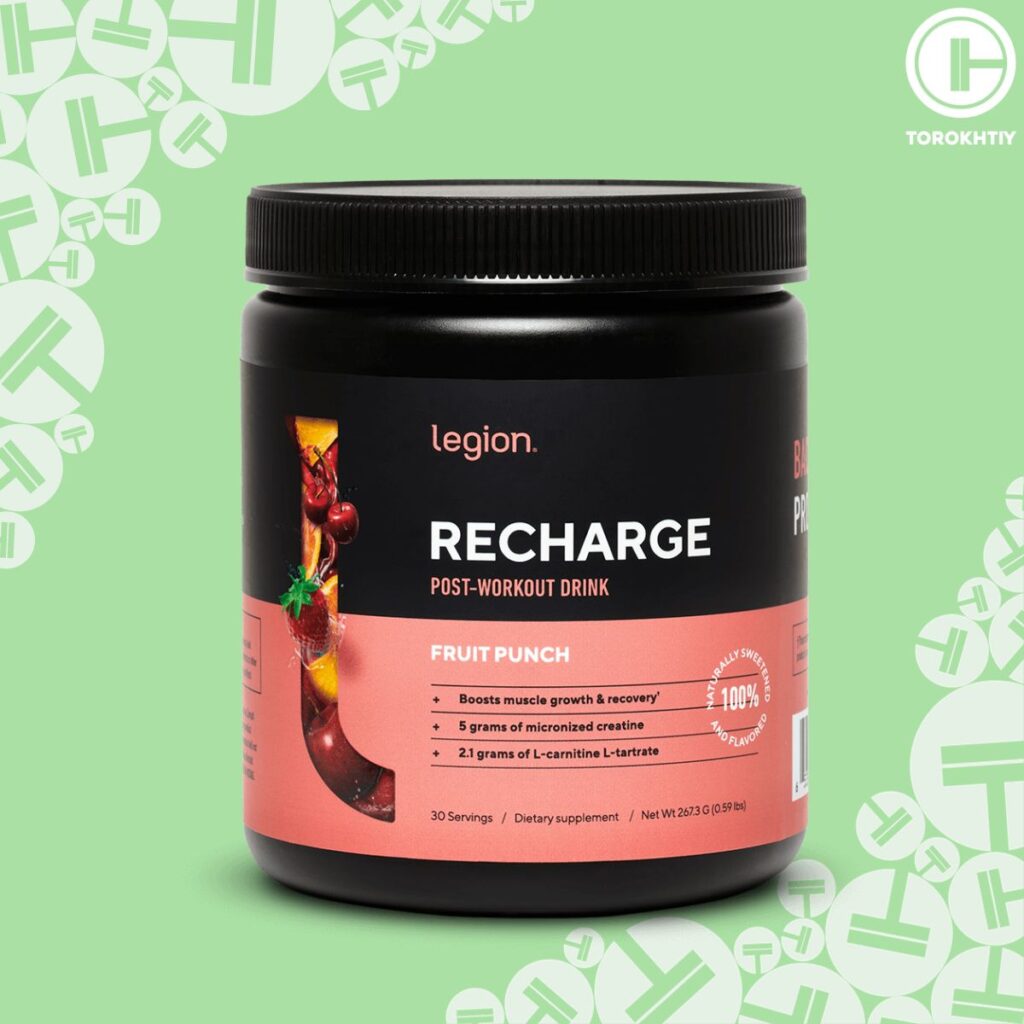L-Carnitine Vs. CLA: Which Is Better For Fat Loss?
Author:
Unlock your full potential by engaging with our experts and community! Have questions about your fitness journey or looking for expert advice on weightlifting techniques? Don’t hesitate — leave a comment below and Jacek Szymanowski will provide a personalized answer and insights to help you reach your goals.
Torokhtiy is reader-supported. Some links are affiliate links, and we may earn a commission at no extra cost to you. See our disclosure page for details.
You may have heard about these 2 supplements and thought, “what’s the difference between L-Carnitine vs. CLA?” In this article, we’ll be going over what separates these 2 supplements so you can decide which is right for you. In short, we recommend L-Carnitine over CLA for safety and effectiveness.
The difference between L-Carnitine vs. CLA lies largely in their effectiveness and safety. While neither is a great weight loss supplement, L-Carnitine has more utility as a potential ergogenic aid and recovery supplement. Meanwhile, L-Carnitine is generally considered a safer supplement than CLA as well.

L-Carnitine vs CLA
L-Carnitine is an amino acid frequently marketed as a fat burner for its role in fat oxidation in the body. Despite this, it does not appear to have any real benefit as a weight loss supplement.
However, Carnitine does still have some use cases as a sports supplement for its ability to potentially improve recovery, reduce oxidative stress, and boost endurance performance.
CLA, which stands for conjugated linoleic acid, meanwhile is a mixture of different forms of linoleic acid, which is an omega-6 fatty acid. While linoleic acid on its own is a valuable nutrient, CLA on the other hand, does not appear to have any real benefits.
Despite being marketed as a fat-loss supplement, evidence shows it has minimal benefits at best. Also, while it is generally considered safe, it appears it may decrease insulin sensitivity and even increase cardiovascular risk.

While we can’t recommend either L-Carnitine or CLA for weight loss, L-Carnitine is the far better choice if you’re looking for a supplement to aid with recovery and ergogenic performance.
Possible Pros and Cons of L-Carnitine
Possible Pros of Carnitine
The main benefits of L-Carnitine lie in its potential performance-enhancing effects.
L-Carnitine L-Tartrate supplementation has been shown to improve exercise performance, enhance recovery, and reduce soreness. It also appears to improve blood flow and oxygen delivery to muscles. Finally, it also appears to increase androgen receptor density in muscle cells!
L-Carnitine also has a wide variety of applications in treating various health conditions including cardiovascular issues, depression, and fertility amongst other conditions.
It’s also worth noting that vegetarians may respond better to L-Carnitine supplementation, likely because of low dietary intake.
Potential Cons of Carnitine
The main con related to L-Carnitine supplementation is how it’s marketed, ;eading to confusion surrounding its use. While it’s commonly claimed that L-Carnitine may be beneficial for weight loss, research shows this likely isn’t true.
Additionally, minor side effects include a fishy body odor associated with doses higher than 3g/day, as well as potential nausea, vomiting, and stomach aches.
Possible Pros and Cons of CLA
Possible Pros of CLA
Despite dietary linoleic acid being a valuable nutrient for general health, it’s difficult to find many pros surrounding the use of CLA. This is especially true considering the already concerning ratio of Omega 6s to Omega 3s in the average western diet.

The only possible pros are that it may have some very specific use cases as a treatment for mild health conditions such as allergy symptoms. Also, while there is some very limited evidence to support its use as a weight loss supplement, these studies show minimal positive results at best.
Potential CLA-Related Health Risks
The main reason we can’t recommend the use of CLA as a dietary supplement is because of the numerous health risks associated with its use.
CLA supplement has been shown to potentially decrease insulin sensitivity in overweight people, which may even lead to prediabetes. Especially with CLA frequently being marketed as a weight loss supplement, this could create a dangerous counterintuitive effect on those trying to lose weight.

Additionally, CLA has been shown to impair endothelial function which may very well increase the risk of cardiovascular issues with consistent issues. With cardiovascular health also being of concern for overweight individuals, this is also especially concerning.
It’s also worth noting that positive results found in studies relating to CLA are from studies done on animals. On top of all the potential health risks of CLA, it’s worth noting that it likely won’t even be especially effective as a weight loss supplement. Because of all this, we strongly recommend avoiding it entirely.
Carnitine vs CLA Summary
Legion Recharge
- Best for: Recovery
- Suitable for Vegans: Yes
- Flavors: Strawberry Kiwi, Fruit Punch, Strawberry Lemonade, Blue Raspberry, Grape, Unflavored, Watermelon
- Special Ingredients: Creatine Monohydrate, L-Carnitine L-Tartrate
- Serving Size: 8.7g
- Price per Serving: ~$1.00
- Company Founded: 2014
- Recommended by Athletes: Gage Clark, Grant Tinsley, Machaela Brabham
Before covering the L-Carnitine supplement we recommend, it should be noted that we will not be recommending any CLA supplement. This is because, as mentioned above, the cons far outweigh the pros, and we don’t see much reason to ever consider taking it.
However, if you’re interested in trying L-Carnitine, we recommend taking it as a part of Legion’s Recharge supplement. While there are more basic L-Carnitine supplements available, this is one of the best high-quality, multi-ingredient L-Carnitine supplements available.

First, you’ll be getting 2.1g of L-Carnitine L-Tartrate per serving. Based on studies, this dose should be ideal for aiding recovery and improving performance.
While this dose of L-carnitine is solid, what makes Recharge an excellent way to get it in is the inclusion of Creatine. Each serving has 5g of Creatine Monohydrate, which is an ideal daily dose of this powerful supplement. With several of the benefits of creatine being improved performance, reduced fatigue, and better recovery, it’s an excellent option to take alongside L-Carnitine.
On top of this, it’s fairly unique as both a creatine and l-carnitine supplement for its wide flavor varieties. Both of these supplements are typically sold unflavored, so having 7 different flavor options is great if you enjoy flavored supplements! They’re also sweetened with stevia and other natural flavors, making them completely free of unnecessary artificial ingredients.

Finally, in terms of price, Legion’s supplement is somewhat expensive compared to individual L-Carnitine and Creatine supplements at ~$1.00 per serving. However, considering the high-quality formula, flavor variety, and convenience of getting two supplements in one, this supplement still offers excellent value for money.
FAQ
Should I Take CLA and L-Carnitine?
If you’re considering taking CLA + Carnitine, benefits of taking these supplements together are virtually nonexistent. While both these supplements are commonly marketed as fat burners, neither are especially effective for improving weight loss. While we can recommend the use of L-Carnitine for improving recovery and potentially boosting performance, we can’t recommend CLA because of associated health risks. This means we don’t recommend taking CLA and L-Carnitine together.
Does CLA Reduce Belly Fat?
No, CLA is not effective for weight loss. We don’t recommend relying on “miracle solutions” for weight loss. Instead, the best way to lose weight steadily and healthily is to be in a small consistent caloric deficit until you reach desired weight and body composition.
Is It Ok to Take CLA Daily?
While CLA does appear to be well tolerated in most people, we don’t recommend the use of CLA because of the potential health risks associated with its use, specifically for overweight people. CLA has been shown to increase the risk of cardiovascular issues and diabetes, specifically in overweight people.
Conclusion
While Conjugated Linoleic Acid and L-Carnitine are both commonly marketed as fat-burning supplements, neither appear to be especially effective as weight loss aids. While L-Carnitine does have some benefits for performance and recovery, we can’t recommend CLA for any reason because of the potential health risks associated with its use, but even tho let’s say it would be safe to take it, there are no real benefits of supplementation for humans.
If you’re interested in using L-Carnitine, consider checking out Recharge by Legion.
Were you aware of the difference between CLA vs. L-Carnitine? Have you ever taken either of these supplements? Let us know your thoughts in the comments below!
Also read:
- High Arginine Foods
- Glutamine for Muscle Recovery
- L Glutamine in Food
- L Carnitine Tartrate vs Acetyl L Carnitine
- When to Take L Carnitine
- Does L-carnitine Work Without Exercise
- L Carnitine vs Acetyl L Carnitine
- Does L-Arginine Increase Testosterone
- Best Time to Take L-Arginine
References
- Australian Institute of Sport “AIS Sports Supplement Framework: Carnitine – Athlete Infographic,” ais.gov.au, https://www.ais.gov.au/__data/assets/pdf_file/0010/1000072/36194_Sport-supplement-fact-sheets-Carnitine-v2.pdf (Accessed October 21, 2023)
- WJ Kraemer, et. al, “The effects of L-carnitine L-tartrate supplementation on hormonal responses to resistance exercise and recovery.” J Strength Cond Res. 2003 Aug;17(3):455-62.
- BA Spiering, et. al, “Responses of criterion variables to different supplemental doses of L-carnitine L-tartrate.” J Strength Cond Res. 2007 Feb;21(1):259-64.
- WJ Kraemer, et. al, “L-Carnitine Supplementation: A New Paradigm for its ROle in Exercise,” Chemical Monthly 136, 1383-1390 (2005)
- WJ Kraemer, et. al, “Androgenic responses to resistance exercise: effects of feeding and L-carnitine.” Med Sci Sports Exerc. 2006 Jul;38(7):1288-96.
- A.P. Simopoulos, “The importance of the ratio of omega-6/omega-3 essential fatty acids,” Biomedicine & Pharmacotherapy, Volume 56, Issue 8, 365-379, October 2002
- Australian Institute of Sport “AIS Sports Supplement Framework: Carnitine – Practitioner Fact Sheet” ais.gov.au, https://www.ais.gov.au/__data/assets/pdf_file/0017/1048310/Carnitine-InfographicFINAL.pdf (Accessed October 21, 2023)
- F Moloney, et. al, “Conjugated linoleic acid supplementation, insulin sensitivity, and lipoprotein metabolism in patients with type 2 diabetes mellitus.” Am J Clin Nutr. Oct;80(4):887-95. (2004)
- Richard B Kreider, “International Society of Sports Nutrition position stand: safety and efficacy of creatine supplementation in exercise, sport, and medicine.” J Int Soc Sports Nutr. 2017 Jun 13;14:18.
Why Trust Us?
With over 20 years in Olympic weightlifting, strength training, nutrition coaching, and general fitness our team does its best to provide the audience with ultimate support and meet the needs and requirements of advanced athletes and professional lifters, as well as people who strive to open new opportunities and develop their physical capabilities with us.
By trusting the recommendations of our certified experts in coaching, nutrition, and sports training programming, as well as scientific consultants, and physiotherapists, we provide you with thorough, well-considered, and scientifically proven content. All the information given in the articles concerning workout programming, separate exercises, and athletic performance, in general, is based on verified data.
The product testing process is described in more detail here.
Author: Jacek Szymanowski
Certified Nutritionist,
M.Sc.Eng. Biotechnology
Performance Architect,
Strength and Conditioning Specialist
With over 30 years of fighting experience, specialization in nutrition coaching for athletes, and expertise in metabolic health and dietary strategies, Jacek offers a comprehensive approach to optimizing your performance and well-being. Backed by a Master of Science degree in Biotechnology, Jacek remains at the forefront of scientific advancements, ensuring that his coaching is always evidence-based and up-to-date.




Still have questions after reading our article? Unlock your full potential by engaging with our experts and community! Don’t hesitate — leave a comment below and Jacek Szymanowski will provide a personalized answer and insights to help you reach your goals.